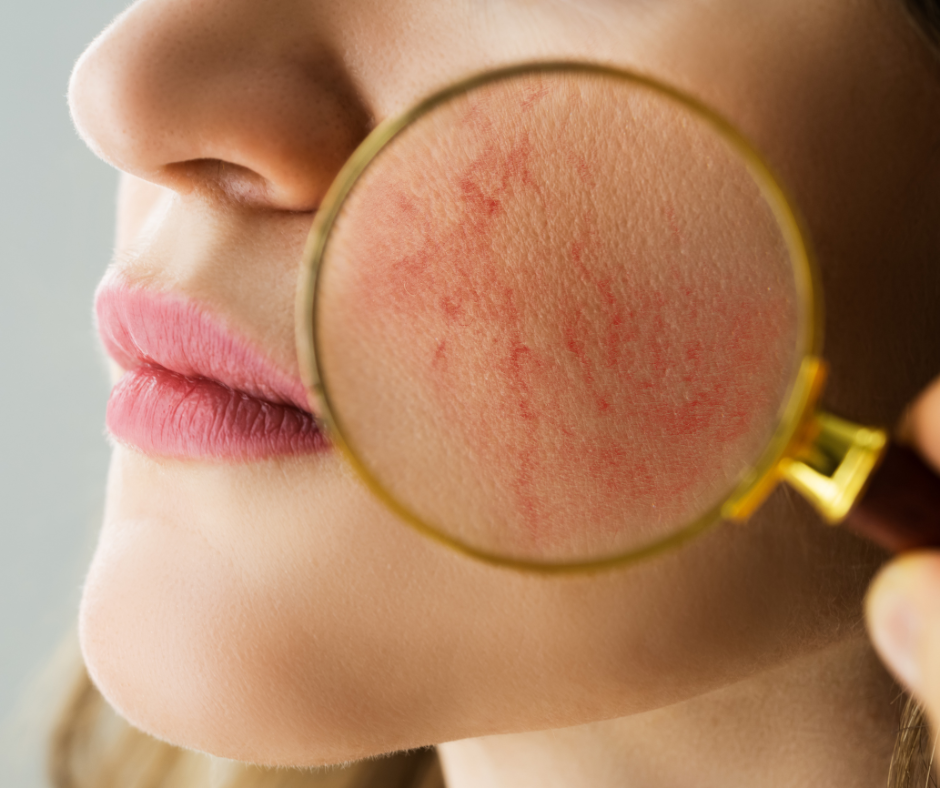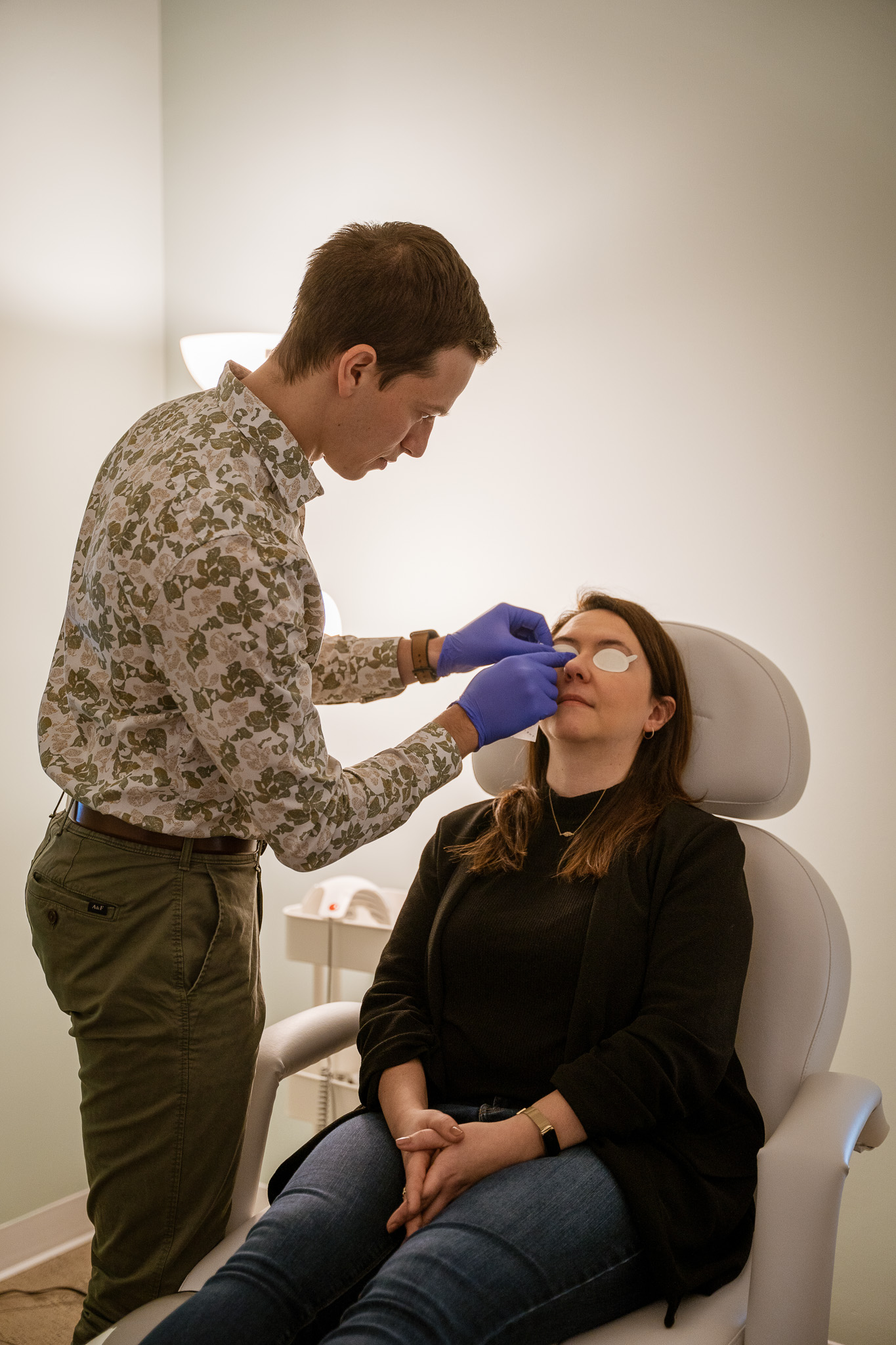Uncategorized
11 July 2023
Uncategorized
11 July 2023


Rosacea is a chronic inflammatory skin condition that affects nearly 2 million Canadians. It is primarily characterized by redness on the face, particularly on the cheeks, nose, chin, and forehead. However, did you know that rosacea can also affect the eyes?
In this article, we will explore the link between rosacea and dry eye, as well as suitable solutions to alleviate these symptoms.
Rosacea is a skin disorder characterized by persistent redness. It can be accompanied by dilated blood vessels, burning or itching sensations, as well as small bumps that resemble pimples.
When rosacea affects the eyes, it is referred to as ocular rosacea. Fortunately, it is possible to prevent the onset or worsening of symptoms through proper care.
Ocular rosacea is often overlooked, but it can have a significant impact on eye health. Approximately 1 in 2 people with rosacea also experience ocular symptoms. The most common signs of ocular rosacea include dry eyes, conjunctivitis, the sensation of a foreign body in the eye, chronic itching, redness, eyelid inflammation (blepharitis), and increased sensitivity to light.
The exact cause of rosacea remains unknown, but several factors can contribute to its development. Common triggers include :
• Climate changes, such as sun exposure, wind, cold, or temperature variations.
• Spicy or hot foods.
• Alcoholic beverages.
• Emotional or physical stress.
• Certain vasodilator medications.
• Products that irritate the skin (cosmetics or improper skincare products).
While it is not possible to completely prevent ocular rosacea, it is still possible to reduce its impact on your well-being and take certain measures to minimize symptoms. This includes :
• Avoiding known triggers, as listed above.
• Using gentle and appropriate skincare products for your skin and eyes.
• Adopting a regular skincare routine to prevent the worsening of skin symptoms.
Early management of rosacea on the skin can also help prevent the onset of ocular rosacea.
Untreated ocular rosacea can lead to complications. In addition to visual discomfort, untreated ocular rosacea can cause long-term vision degradation.
The diagnosis of ocular rosacea is typically made by a specialized healthcare professional, such as an optometrist or an ophthalmologist. They will conduct a thorough examination of your eyes and skin to determine if you have signs of ocular rosacea.
The examination may include :
• Observing symptoms such as dryness, redness, itching, etc.
• Evaluating your medical history and skin symptoms.
• Examining the eyelids and Meibomian glands for possible obstructions or inflammations.
• Other specific tests may also be conducted to assess the quantity and quality of tears produced.
Schedule an appointment with one of our optometrists for an evaluation of your condition!
Various treatments are available to alleviate dry eye associated with rosacea, including :
• Laser treatments, such as Intense Pulsed Light (IPL) therapy, to improve Meibomian gland function and reduce symptoms.
• Use of artificial tears to hydrate the eyes and relieve dryness symptoms.
• Anti-inflammatory eye drops to reduce inflammation and redness.
• Topical or oral antibiotics to treat associated eye infections.
The choice of treatment will depend on the severity of your symptoms and the recommendation of your healthcare professional.
When it comes to treating dry eye associated with rosacea, trusting professionals is essential. At Eye Am, we are here to support you in this process by providing personalized advice and comprehensive eye health care. Our expertise in the field allows us to offer the most advanced and effective treatments for relieving dry eye.
Rosacea and dry eye are conditions that require appropriate management. By taking care of your skin and eyes, you can prevent the onset or worsening of symptoms. Schedule an appointment today and discover our tailored solutions to alleviate your ocular rosacea and improve your visual comfort.